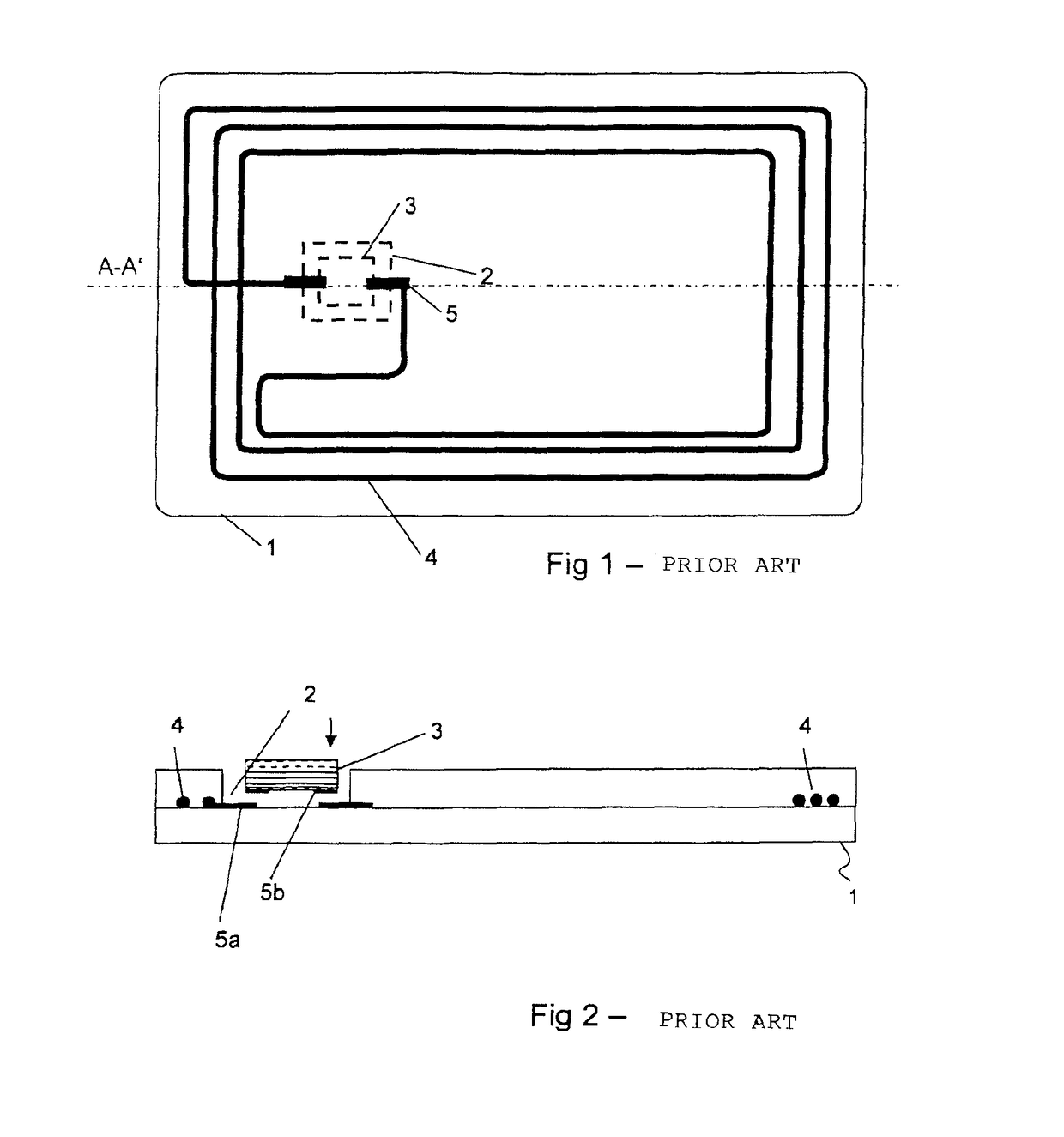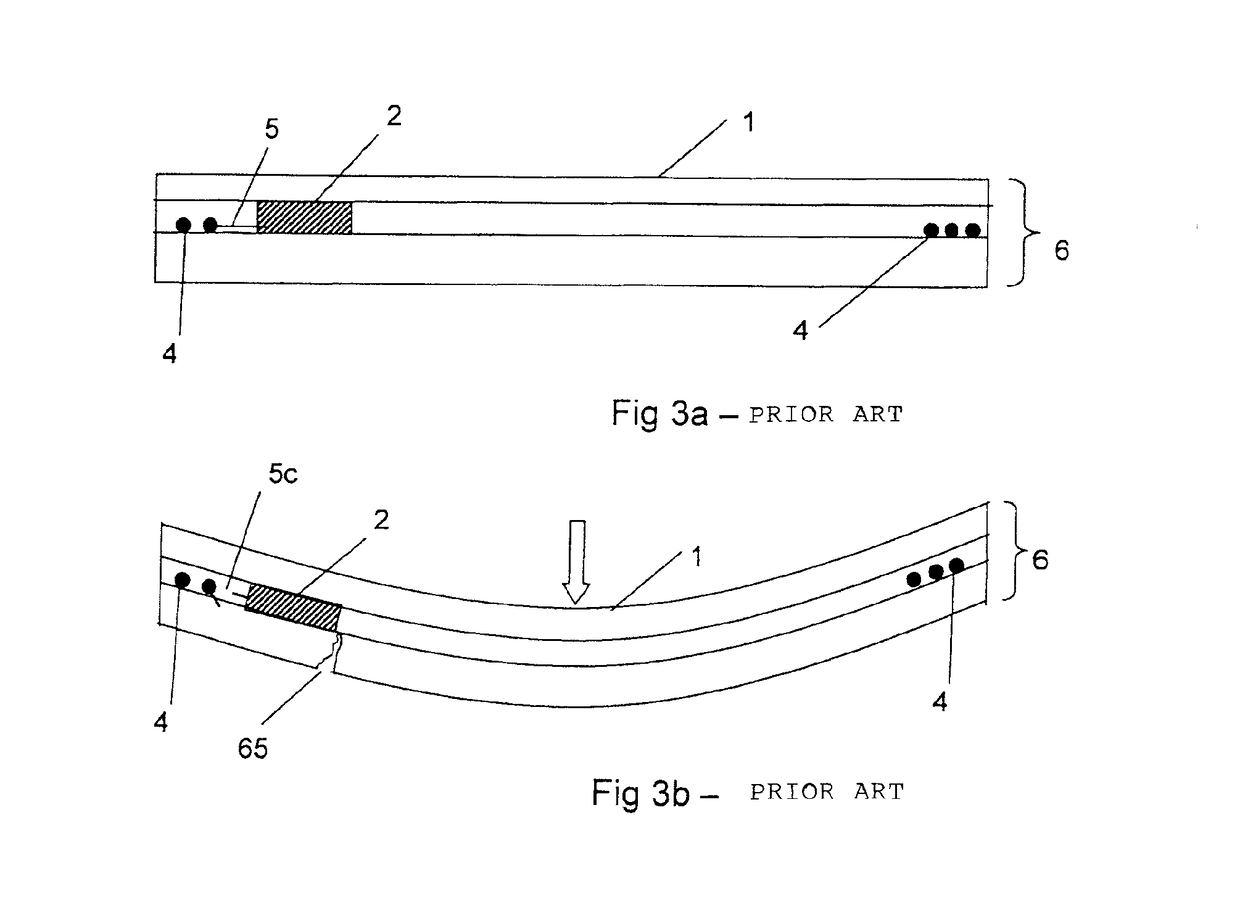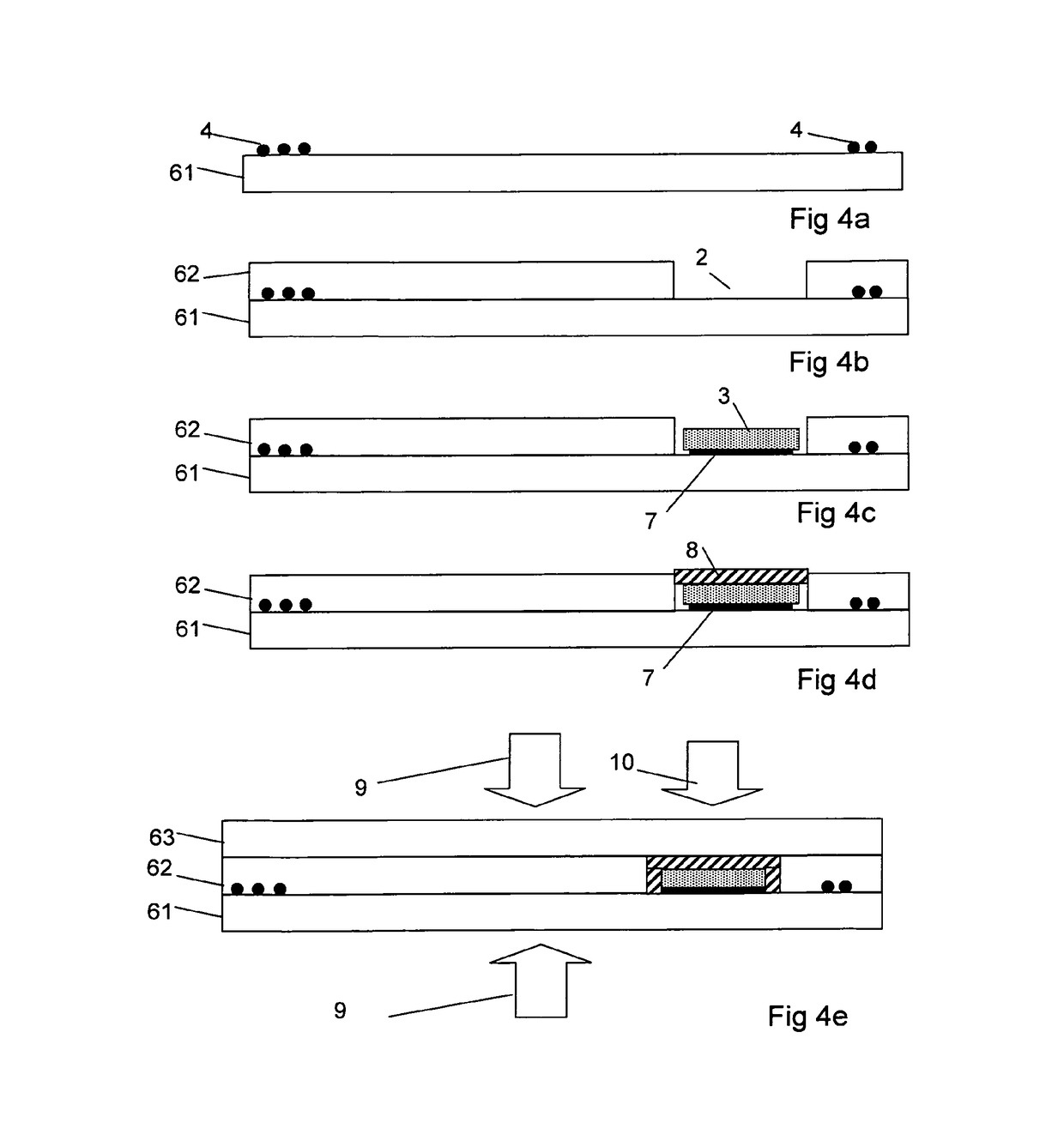Method for producing a data carrier that prevents mechanical strains between chip and data carrier body
a data carrier and mechanical strain technology, applied in the field of data carrier manufacturing, can solve the problems of affecting the performance the durability of the data carrier, and the lack of dedicated user data output,
- Summary
- Abstract
- Description
- Claims
- Application Information
AI Technical Summary
Benefits of technology
Problems solved by technology
Method used
Image
Examples
Embodiment Construction
[0046]FIG. 1 shows a data carrier 1 in plan view with an incorporated near-field antenna according to the today's prior art. A gap 2 is incorporated in the data carrier body 6. This gap 2 can be manufactured in different ways, for example by constructing the data carrier body 6 in layers with a corresponding gap 2 in one of the layers. Into the gap 2 there is incorporated a chip 3. The chip 3 either is an integrated semiconductor chip arranged with contact pads on a substrate, which semiconductor chip is incorporated into the data carrier body 6 such that a contacting of the chip by means of an external end device is possible. Alternatively, the chip is a molded semiconductor chip, which is incorporated into the gap 2 to be electroconductively connected with contacting points 5 of the data carrier body 6 there. The contacting points 5 in turn are connected with a near-field antenna 4, in the following referred to as coil 4, arranged in the data carrier body 6.
[0047]Such data carrier...
PUM
| Property | Measurement | Unit |
|---|---|---|
| electroconductive | aaaaa | aaaaa |
| flexible | aaaaa | aaaaa |
| size | aaaaa | aaaaa |
Abstract
Description
Claims
Application Information
 Login to View More
Login to View More - R&D
- Intellectual Property
- Life Sciences
- Materials
- Tech Scout
- Unparalleled Data Quality
- Higher Quality Content
- 60% Fewer Hallucinations
Browse by: Latest US Patents, China's latest patents, Technical Efficacy Thesaurus, Application Domain, Technology Topic, Popular Technical Reports.
© 2025 PatSnap. All rights reserved.Legal|Privacy policy|Modern Slavery Act Transparency Statement|Sitemap|About US| Contact US: help@patsnap.com



